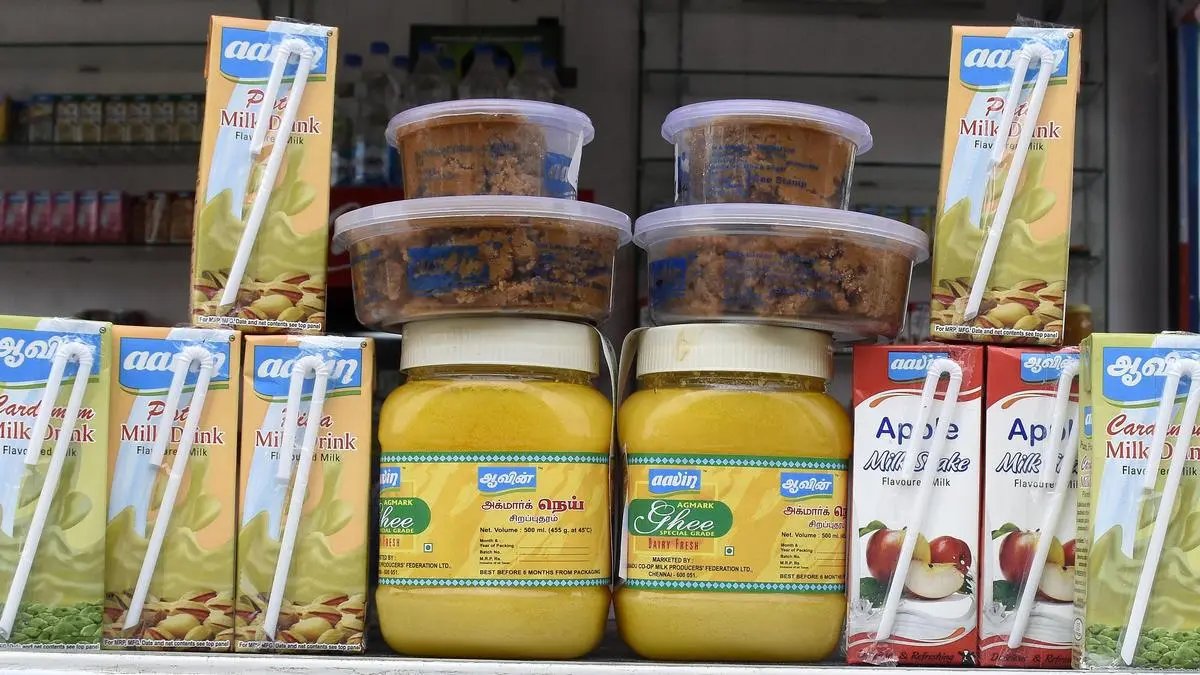How ethical sourcing practices are transforming India’s dairy products like ghee and farm-based foods

The ancient Sanskrit aphorism from the Taittiriya Upanishad, “अन्नं बहु कुर्वीत । तद् व्रतम् ।” —“Multiply anna (food/grain) many-fold. Ensure an abundance of food all around. That is the inviolable discipline of life for the one who knows”—beautifully encapsulates India’s agricultural ethos. This timeless mandate, which resonates deeply with the nation’s heritage, has always been the fundamental vow in its ongoing journey to feed a billion-plus population.
Nonetheless, this dedication is beginning to evolve into a new aspect. While the primary goal remains to ensure an abundance of food, the emphasis has transitioned from maximizing output to prioritizing ethical and sustainable sourcing practices. This transformation is particularly evident in the high-end Indian dairy industry. As consumers grow increasingly aware of ethical considerations, a notable shift is taking place in the dynamics between dairy producers, the land they cultivate, and the final products they deliver. This ethical movement is not only improving the standards of milk production but also advocating for positive, sustainable change across the entire food supply sector.
India’s “White Revolution” established the country as the world’s largest milk producer. For the past decade, this revolution has been succeeding. For every accolade, however, came the chaos of unsustainable milk production, malpractices, and a consumer disconnect that heightened the plight of small and marginal farmers. Currently, a subtle yet significant change is underway. Increasing consumer interest in sustainably sourced, pure, and transparent food is driving shifts and collaborative efforts towards food system fairness and environmental accountability.
Beyond purity to pedigree
The responsible production of ghee, a type of clarified butter that holds significant importance in Indian culture, is transforming the dairy sector. It emphasises both animal welfare and the quality of the product. This ethical approach starts with obtaining milk from specific indigenous cow breeds such as Gir, Sahiwal, or Rathi, known for their A2 milk. The entire lifecycle of the cows follows rigorous animal welfare guidelines. These cows are always pasture-fed or allowed to roam freely, never confined, and are treated with compassion. They do not receive unregulated antibiotics or hormones. Their diet includes sustainable fodder, usually grown organically and free from chemicals on the farmers’ land. Dedicated caretakers, known as Gaupalaks, oversee this commitment to care. They ensure the cows are safe, healthy, and treated with respect, which is vital to the farm’s ethos.
The production process that meets these ethical standards is the traditional bilona method. This method does not churn cream. Instead, A2 milk is converted into whole curd, or yogurt. This curd is then slowly churned with a wooden churner, or bilona, in alternating directions to separate the raw butter, or makkhan. Makkhan is clarified by gently heating it for an extended period. This process removes the milk solids, resulting in pure, golden ghee. This classic approach, along with fair compensation for farmers, ensures that the product is authentic and full of nutrients. It also supports a sustainable, respectful, and clear supply chain from farm to table.
Empowering farmers: From producers to stakeholders
Empowering farmers is foundational to ethical sourcing. Until recently, smallholders had to deal with middlemen, exposing themselves to market price volatility and profit loss. The goal of ethical sourcing is to disrupt these exploitative channels through direct procurement, ensuring a larger share of profit goes to the producer. Multiple channels, such as training on sustainable agriculture, financial literacy, and other sustainable practices, empower farmers with the skills necessary to improve yields and market access.
This model addresses direct sourcing over the long term, ensuring farmers are genuine stakeholders in the relationship. Stable contracts provide a source of predictable demand and risk mitigation to assist with production planning, which reduces farmers’ market risk exposure. For small and marginal farmers in particular, these shifts are transformative: profit channels for previously subsistence production shift them toward sustainable living, reduce exposure to market volatility and risk, and foster a deeper emotional investment in their work, product, and output.
The ripple effect
The ethical sourcing of products from the dairy industry, such as ghee, is now influencing other farm foods, with consumers looking for the same sourcing assurances with their spices, pulses, cereals, fruits, and vegetables. Retailers are scrutinising their supply chains for fair trade spices, are paying fair wages, are supplying certified organic produce directly to urban centers, and are market-linking with the growing of heritage grains. centresThe ethical sourcing ecosystem is a significant shift from the transactional nature of older fair-trade concepts. It marks the first time in the history of the Indian food economy that fair trade and ethical sourcing have become a central axis. It is a profound departure from the one-dimensional focus on output (measured in volume). Discerning customers and businesses looking for trusted partnerships aimed at shared value and equity are driving a first-order change to the Indian agricultural economy. The truly ancient Indian agricultural promise of growing food has become a ‘live’ one.
THe author is MD, Bharat Vedica – A Patel Venture
Published on October 25, 2025


